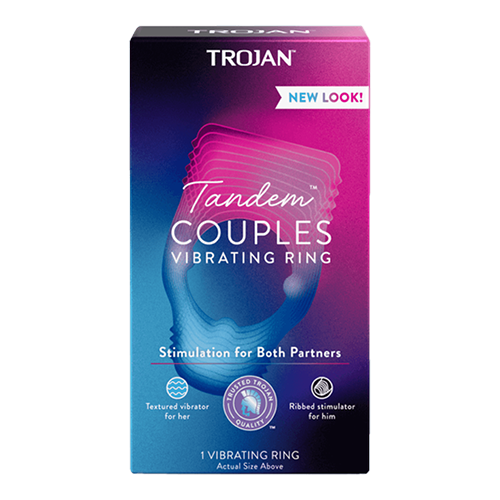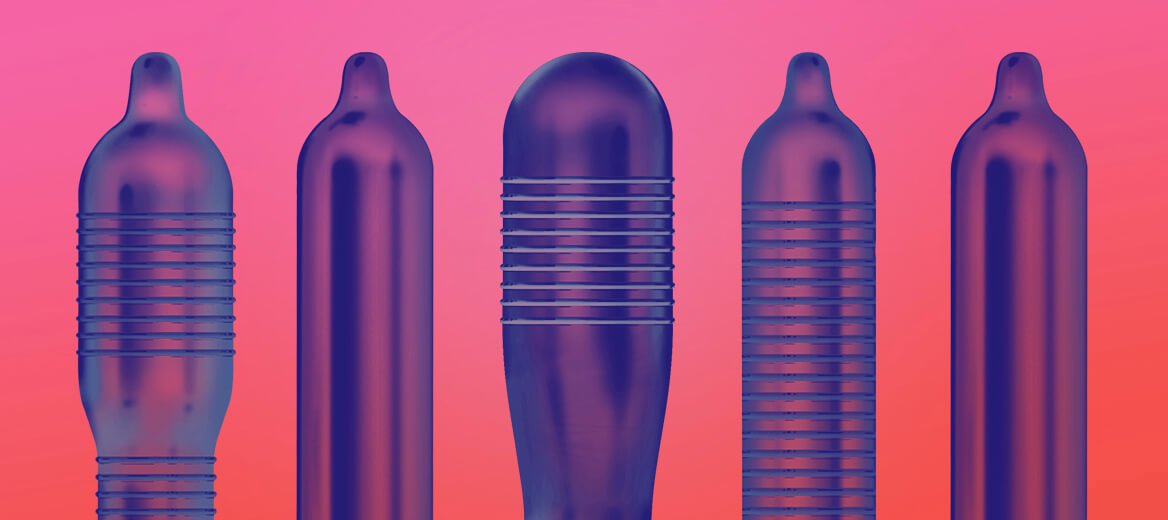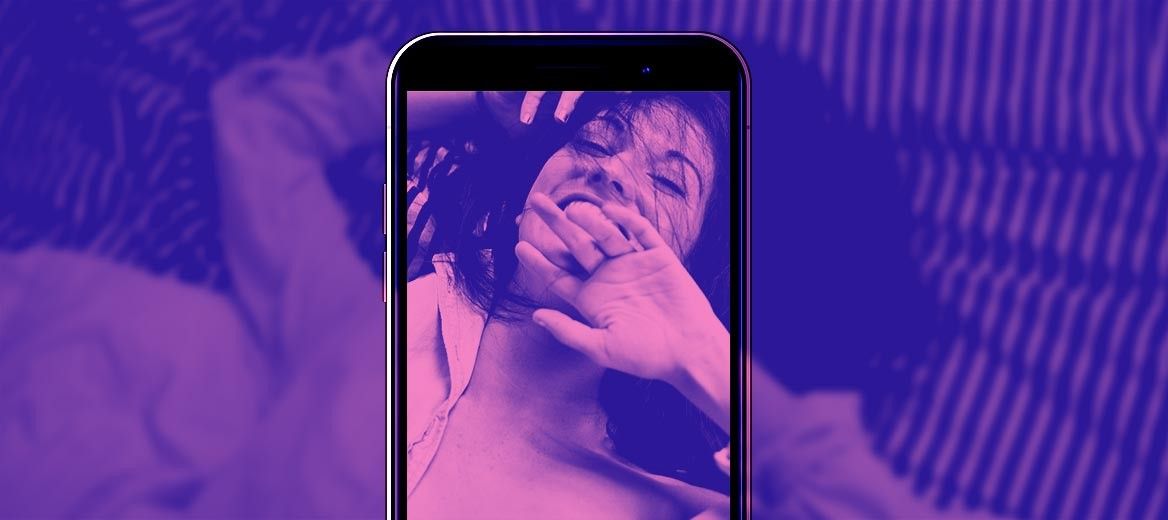Health + Wellness
Body Positivity, Body Neutrality & Learning to Live in and Love Your Body

Partnered sex is all about sharing your body with another person whether you are kissing fully clothed or taking it all off and jumping into bed. It is very normal to be worried about exposing some or all of your body to another person at close range, especially if you're new to sex or have a new partner.
Being naked in front of others is a particularly vulnerable position (why do you think arriving at work or school in your birthday suit is such a common nightmare?). Some of this comes from our natural instincts to protect ourselves, but some of it comes from all of the messages we've been given throughout our lives that suggest certain bodies are worthy of admiration or even envy and others are not.
In this article we are going to talk about body image and why it can easily become distorted in our society. And we'll look to the body positivity movement and the body neutrality movement for new ways to learn to accept the bodies we have, no matter what they look like.
Warning: this article will discuss body dysmorphia and mentions abuse.
Understanding Your Body Image and Where it Comes From
Body image is your internal sense of and feelings about your own body-whether you think of yourself as beautiful, like the shape of your body, and feel comfortable in it. Body image also has to do with how you think others see your body, which may or may not be accurate.
Popular Media Biases Affect a Healthy Body Image
Our body image develops over the course of our lifetime and the messages we receive from our families, culture, and the media play a critical role in how we see ourselves. For a long time, the popular media made it clear that specific body types were preferable. Magazine covers, advertisements, and store displays would only feature tall, thin women and extremely muscular men. Even when models met these criteria, their photos would be retouched using software like Photoshop to makes thighs and waists thinner, torsos longer, and cleavage, abs, cheekbones, and jawlines more pronounced.
People with any other body type, such as fat bodies, trans bodies, or disabled bodies, are not represented, which makes them feel like they don't, or shouldn't, exist. It's important to note that many of our beauty norms reflect unconscious bias that favors features and shapes more common to white people. Black and brown bodies are often also marginalized.
Family, Society & Social Media Can Contribute to Body Insecurities
In addition to messages from the media we watch, read, and listen to, families and people around us reinforce these conventional beauty norms by commenting on body shape and size. All of this can add up to body insecurities and a negative body image.
Negative Body Image is Related to Abuse and Mental Health Issues
A history of sexual abuse or assault can also contribute to negative body image. Researchers have found that women who were sexually abused report more body self-consciousness, less satisfaction with themselves, less satisfaction in relationships, and discomfort having sex with the lights on or undressing in front of a partner than those who had not been sexually abused.
People with a negative body image are more likely to develop other issues such as eating disorders and depression. A negative body image can also lead to low self-esteem which can, in turn, change your behavior (you may not want to be around others) and lead to other mental health issues.
Body Dysmorphia
Severe negative body image or body insecurity can lead to a diagnosis of body dysmorphia. (This is sometimes inaccurately referred to as body dysphoria. People might be confusing it with gender dysphoria, which is the significant distress and discomfort with their body and genitals that some trans people experience because their gender identity does not match the sex they were assigned at birth. These two conditions are not the same.)
Body dysmorphia is a mental health condition in which a person obsesses over the size or shape of their body or a perceived flaw in their appearance. People with body dysmorphia may assume everyone is staring at or talking about their flaws, may experience extreme dissatisfaction with their appearance, and may avoid social situations for fear of criticism.
Body dysmorphia often causes people to have an unrealistic perception of their size and is associated with eating disorders. Researchers estimate that 12% of people with body dysmorphic disorder also have anorexia and bulimia.
Medication and cognitive behavioral therapy can help people with body dysmorphia.
If you think you may be suffering with body dysmorphia or an eating disorder, reach out to your health care provider or contact the National Eating Disorder Association's help line.
Genital or Breast Body Image is Part of Overall Healthy Body Image
We don't talk about it a lot, but body image also includes the size and shape of our genitals and breasts. People with penises have been taught that bigger is better and are often left wondering how they measure up. Size also supposedly matters when it comes to breasts though what breast shape and size is seen as preferable can change over time and with fashion trends.
Those with vulvas and vaginas often wonder if theirs are attractive enough. The most common complaint is that inner lips are too long and hang too low. Some experts believe that porn shows only one version of what vulvas look like-small, tucked in, and completely hairless. In recent years, there has been a rise in labiaplasty, plastic surgery to change the shape of the labia.
Some anxiety about our genitals is normal when we're sharing our bodies with a partner, but too much can get in the way of enjoying sex. Most partners will like your genitals regardless of their exact shape and size because they like you, they like making you feel good, and they like the way you make them feel.
Body Positivity and Body Neutrality (and Other Movements to Help Us Love our Bodies)
The body positivity movement actually grew out of efforts in the 1960s to bring positive attention to fat bodies. Many people with larger bodies experience fat-shaming-being made fun of, judged, or humiliated for their size. Body positivity asks us to acknowledge that bodies come in all shapes and sizes and that no one size or shape is superior.
On an individual level, body positivity can mean:
Accepting your body's unique shape and size
Loving your body despite characteristics that might be seen as flaws
Not worrying about how others perceive your body
Not spending an inordinate amount of time trying to change your body's shape or size
Feeling confident in your body
The body positivity movement is not without its critics, however. Some feel that the message has been co-opted by thin, conventionally beautiful people and that the roots of the movement in fat acceptance have been forgotten. Others argue that asking everyone to love their body still puts an inordinate amount of focus on our appearance.
Enter the body neutrality movement.
Body neutrality asks us to stop looking at our bodies (or anyone else's) as objects and, instead, concentrate on what bodies do for us and how we use them every day. There is nothing wrong with loving your body as it is, but the body neutrality movement recognizes that this is not possible and tremendously painful for many people.
Tips for a Healthy Body Image
All of these movements have the noble goal of trying to get us to feel better about the bodies we have. A healthy body image is integral to overall physical and mental health, and it's important to sexual health as well. Negative feelings about your own body can get in the way of sharing it with others and enjoying sex with a partner.
Here are a few tips for feeling at home, empowered, beautiful, and sexy in your skin. We realize that these may be hard for a lot of people; it can take a long time to overcome the negative messages some of us have heard about our bodies for our whole lives.
Focus on what your body can do rather than how it looks. Our bodies carry our vital organs, our brains, and our spirits from activity to activity. Appreciate it for what it can do-whether that is riding a bike, cooking a meal for friends, planting a garden, or taking a nap. Celebrate it by doing something that feels good like taking a bubble bath, getting a massage, or giving yourself a really good orgasm.
Concentrate on overall health rather than appearance. At this point most of us know the dos and don'ts of good health. We should eat fruits, vegetables, and lean proteins when possible and try to avoid too much processed food and sugar. We should move our bodies however we can whether that's taking a yoga class, playing soccer, hitting the gym, or having a one-person dance party while doing the dishes. We should also get enough sleep, try to limit stress, and spend some time in nature. Plus, we should check in with health care providers regularly. All of this is easier said than done but try to focus on these things rather than on how you look.
Find clothes and accessories that fit well and make you feel good. One of the nice outcomes of the body positivity movement is that there is much more fashion for every size now. Look for a style that you feel good in. It doesn't have to be completely on trend, it just has to make you feel fabulous. Confidence is sexy. If you walk into a room like you own the place, people will believe you do.
Surround yourself with positive people. It's easier for you to feel good about yourself if those around you help boost your confidence. Limit contact with people who subtly or not-so-subtly say that you'd be prettier if you lost ten pounds or happier if you wore more makeup. This is especially important when it comes to sexual partners-someone who is frequently critical about your appearance is probably not the right person to share your body with.
Be a critical consumer of media messages and social media images. We have made progress in portraying more diverse body types in magazines and televisions shows, but it would be inaccurate to say all bodies are treated equally in Hollywood or anywhere else. Remember that even the people who look so glamorous on the screen don't look that way in real life and that your high school friend on Instagram probably took 72 shots and used a few filters before posting their beach photo. And try to stop comparing yourself to others. We are always our own harshest critics so it's hard to win that game.
Remember change is the only constant. We were all given classes and pep talks about the changes our bodies were going to go through at puberty, but no one prepares us for the fact that body changes just keep happening. Age, pregnancy, medication, injury, stress, and hormone changes are just some of the things that can alter our size and shape. This a natural part of life and it is okay. Don't beat yourself up about it.
All Bodies are Valid and Beautiful
No one should be made to feel bad about themselves because of how they look. All bodies are wonderful because they let us live our lives, find love, and feel pleasure. It is wrong that society has suggested some bodies-whether they are fat, trans, or disabled-are less worthy of our respect and admiration. We all need to push back against this idea in our communities and in ourselves.
Negative body image can impact our mental and physical health and prevent us from having a healthy and active sex life. There are things we can do to change our perceptions and quiet the negative self-talk that so many of us experience. If you are struggling with negative body image or low self-esteem and feel like this is getting in the way of enjoying your life, check in with your health care provider for resources near you. If you think you may have body dysmorphia or are struggling with an eating disorder, reach out to the National Eating Disorder Association's help line.
Whether you call it body positivity or body neutrality or neither, try focusing less on appearance and more on who you are as a person. Surround yourself with people who love you for who you are, not how you look, and make sure the people you love know their beauty as a person is about far more than their outward appearance.
For more information about confidence in yourself, relationships and others, read some of our favorite wellness articles:
Understanding Gender Identities





